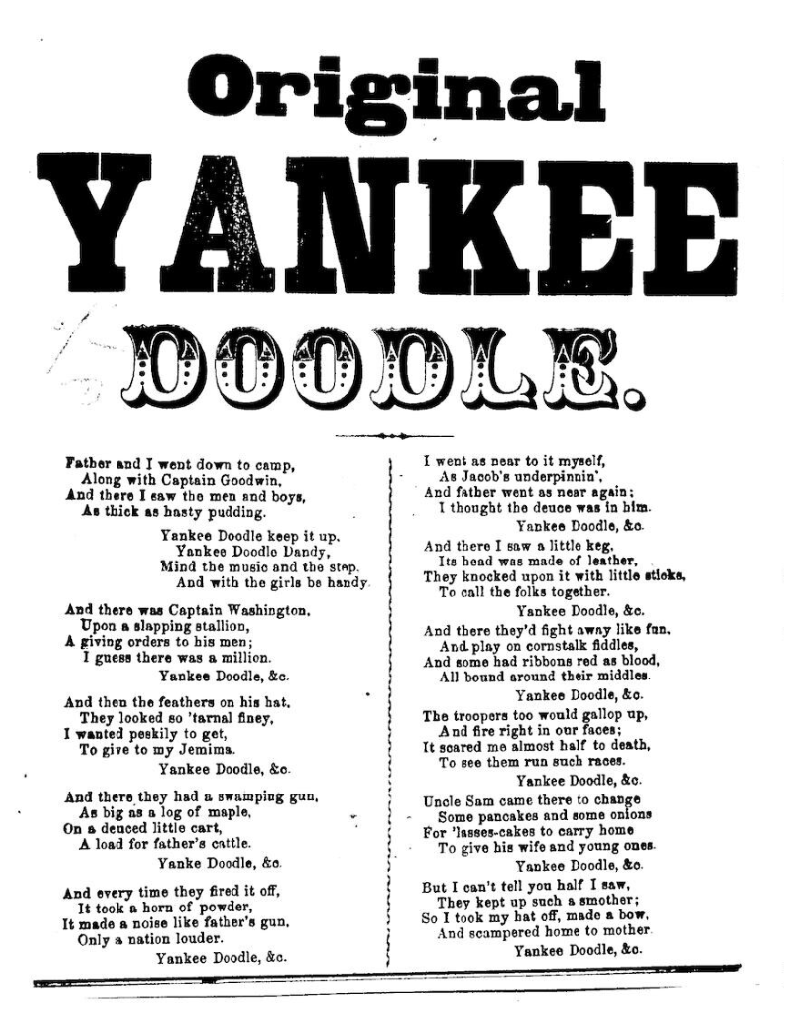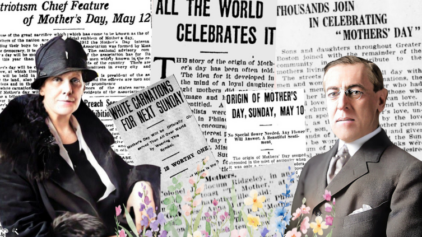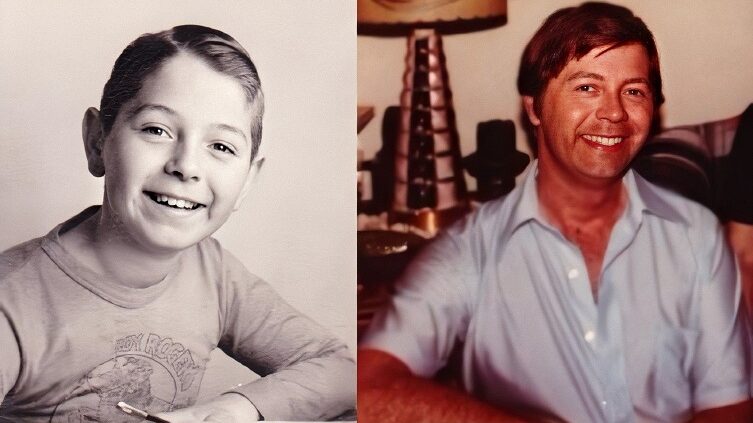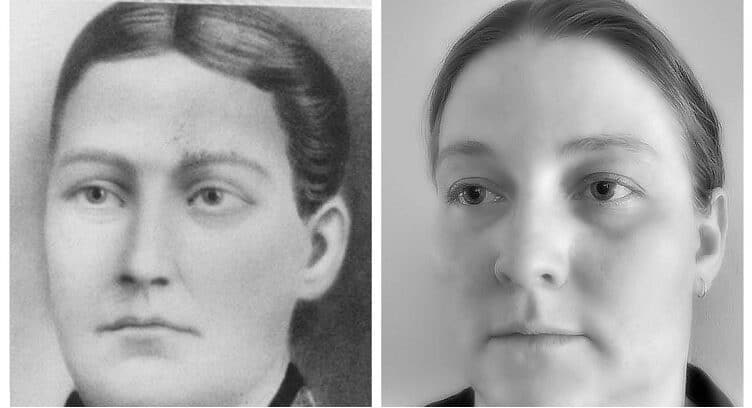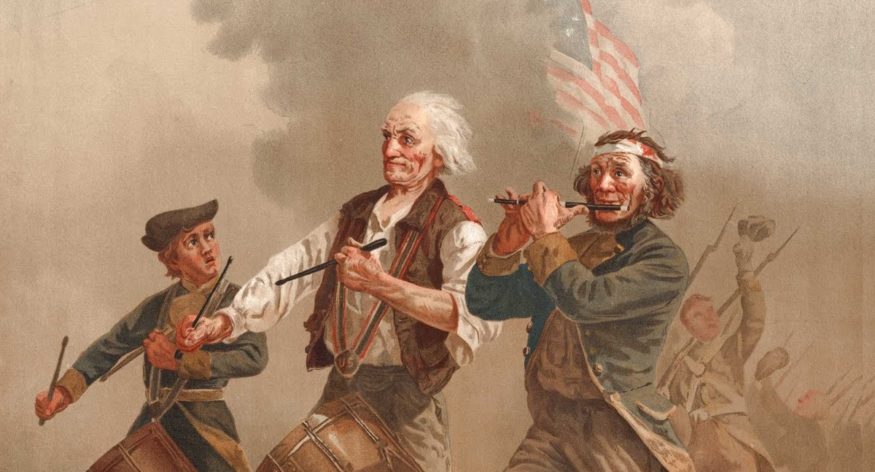

There is hardly a symbol or character more American than Yankee Doodle. The catchy song dates back to the Seven Years’ War and the American Revolution (1775–83). It has withstood the test of time, albeit with various modifications along the way.
As a symbol of American patriotism, Yankee Doodle is often sung throughout the United States, and it is even the state anthem of Connecticut.
The most familiar verse begins with:
Yankee Doodle went to town,
A-riding on a pony.
Stuck a feather in his cap,
And called it macaroni.
While the tune can be traced back to Medieval Europe, the lyrics have been attributed to multiple sources. One version of the Yankee Doodle lyrics is attributed to British surgeon Dr. Shuckburgh. According to one story, he wrote the song after seeing the appearance of Colonial troops under Colonel Thomas Fitch, the son of Connecticut Governor Thomas Fitch.
In 1755, then aged 30, Fitch was the commander of four New England Regiments during the French and Indian War. At the start of the war, Fitch assembled his company of recruits at the Fitch homestead in Norwalk. His sister Elizabeth was concerned about the recruits’ appearance and lack of uniforms, so she presented each man with a chicken feather for their hats for uniformity.
When Shuckburgh saw the troops in their unpolished clothing, and with feathers in their hats, he wrote the verses of the song mocking Fitch and his men as “Yankee Doodles and Macaronies.” Yankee referring to New Englanders, Doodle meaning fool or simpleton, and macaroni describing a fashionable man dressed outlandishly. This is how Fitch was coined the original “Yankee Doodle.”
Although the original song was drafted with the intent to mock American troops, by the late 18th century, thanks to multiple military successes, the song turned from being an insult to being a song of national pride.
Fitch died January 16, 1795, and is buried in the East Norwalk Historical Cemetery in Connecticut. Fitch’s gravestone even states that he was the song’s inspiration.
In anticipation of July 4th, and with the song an American institution, we had our research team look for Colonel Fitch’s descendants. While building Thomas Fitch’s family tree on MyHeritage, we located his great-great-great-great-great-grandson!
David Ditta, a retired San Francisco photographer, has always been interested in his family history. He’s plowed through research, accumulating relatives, and building an impressive family tree. He has even traced his American ancestors back to relatives who arrived in the United States in 1637.
 Despite his extensive research, David never knew about his connection to Colonel Fitch. He’s excited to add such a prominent line to the family tree.
Despite his extensive research, David never knew about his connection to Colonel Fitch. He’s excited to add such a prominent line to the family tree.
When they first sent me a message, I figured there’s not a chance. I had a pretty good idea of our genealogy. But when I saw the connection with the Davenports, it all clicked.
David can now proudly tell family and friends about his notable ancestor who holds not only a special place in the family history but also in the Nation’s history. The song Yankee Doodle will continue to inspire patriotic Americans for generations to come.
Read more about this in the New York Times.
